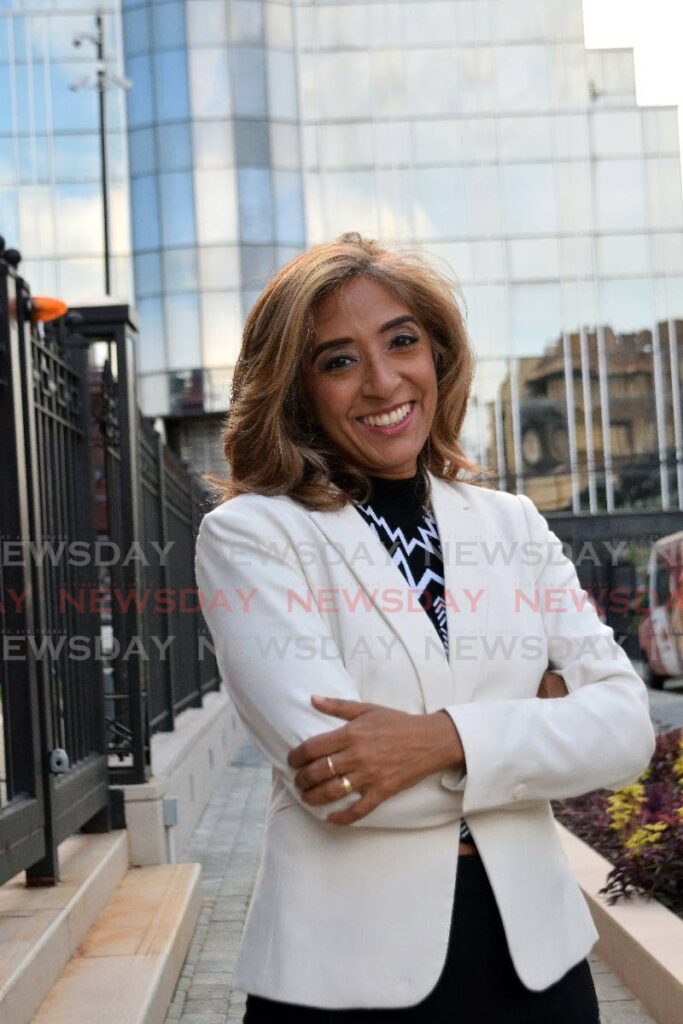Real meaning of ‘my body, my choice’

DR GABRIELLE JAMELA HOSEIN
THE SLOGAN “my body, my choice” was popularised by decades of outcry by global feminist movements. In particular, it described women’s struggle against state and religious denial of their right to safe and legal abortion.
Watching it get taken up by the religious right, anti-vaxxers and the vaccine-hesitant today, and being printed on t-shirts sold on Charlotte Street, is nothing short of ironic. Where were these marchers when it came to women’s bodies and rights during all these decades?
Looking at the First Wave movement, led by Umar Abdullah, I can only wonder at the convenience of a partial, patriarchal take-up of the idea of bodily sovereignty and integrity. Such appropriation is happening all over the world, including by those who resist masking, quarantines and vaccines.
He’s now leading hundreds who seem to get the concept of choice, but will it continue being a right worth defending when it comes to choices experienced by and denied to women?
“My body, my choice” has named women’s resistance to rape culture, which normalises sexual violence, and blames and silences victims for an act which fundamentally violates their right to consent. It has articulated pushback against an array of examples of women’s subordination.
It includes calls for lesbian women’s protection from discrimination (denied to them in Trinidad and Tobago today), First Nations’ women’s freedom from forced sterilisation across the Americas, legal inclusion of African women’s right to consent to marital sex, social recognition of South Asian women’s choice whether to marry and have children, and respect for Arab women’s refusal of the repressive ways that family honour is tied to their dress, respectability and sexuality.
The fundamental principle is that women should exercise final decision over their bodies, sexual and reproductive health, and life. They should have a satisfying and safe sex life, and power and freedom regarding if, when and how often to reproduce.
This would mean having the equal power of self-determination as men, without domination, duress or constraint whether by social norms, law, institutions or individuals. Such equality is currently denied in the majority of countries, including in TT.
It would mean having access to public health support to make such decisions regardless of women’s sexuality, nationality, livelihood, religion, class, age or marital status. It also includes access to safe and nurturing communities, access to affordable housing and food, and access to work opportunities, which all impact women’s sexual and reproductive options and decisions.
This bold statement has also been about a demand to live without the harms that are experienced by so many women and girls in our world today, including rape, lack of access to contraception, forced unions and pregnancies, unwanted births, botched abortions, and maternal death.
As our old slogan picks up renewed momentum in the contentious politics of the pandemic, I want to remind vaccine marchers of its history and the feminist labour that has gone into giving it familiarity and an ease with which it can be championed, even as its radical gender justice and social justice roots and more emancipatory feminist vision appear to be forgotten, ignored, undervalued or still foreclosed.
I’m curious about how those now carrying this message on their placards will respond to this reminder. When does choice matter? Whose choices matter? What kinds of choices are matters of human rights and public health? What are your underlying conceptions of community, care and justice? And, what explains when state domination of bodies is considered morally right and when is it not okay?
Of course, it would be brilliant to see civic solidarity emerge from this moment and its leadership. Now that this slogan has reached diverse constituencies and communities, and is being broadly demanded, can there be an opening for a more inclusive conception of what it aims to articulate and achieve?
Recent history suggests not. In the US, such groups bring together Christian fundamentalists who are anti-immigrant, anti-feminist, highly individualistic and opposed to gender, sexual, reproductive and racial justice. This is who local groups are aligning with ideologically, whether they realise it or not. So, it is possible that we can gain local feminist allies but, alas, unlikely.
Arundhati Roy asked us to imagine the pandemic as a portal. We can “choose to walk through it, dragging the carcasses of our prejudice and hatred,” she wrote. “Or we can walk through lightly…ready to imagine another world. And ready to fight for it.”
For me, all this is what “my body, my choice” really requires and means.
Diary of a mothering worker
Entry 449
motheringworker@gmail.com
Gabrielle Hosein

Comments
"Real meaning of ‘my body, my choice’"